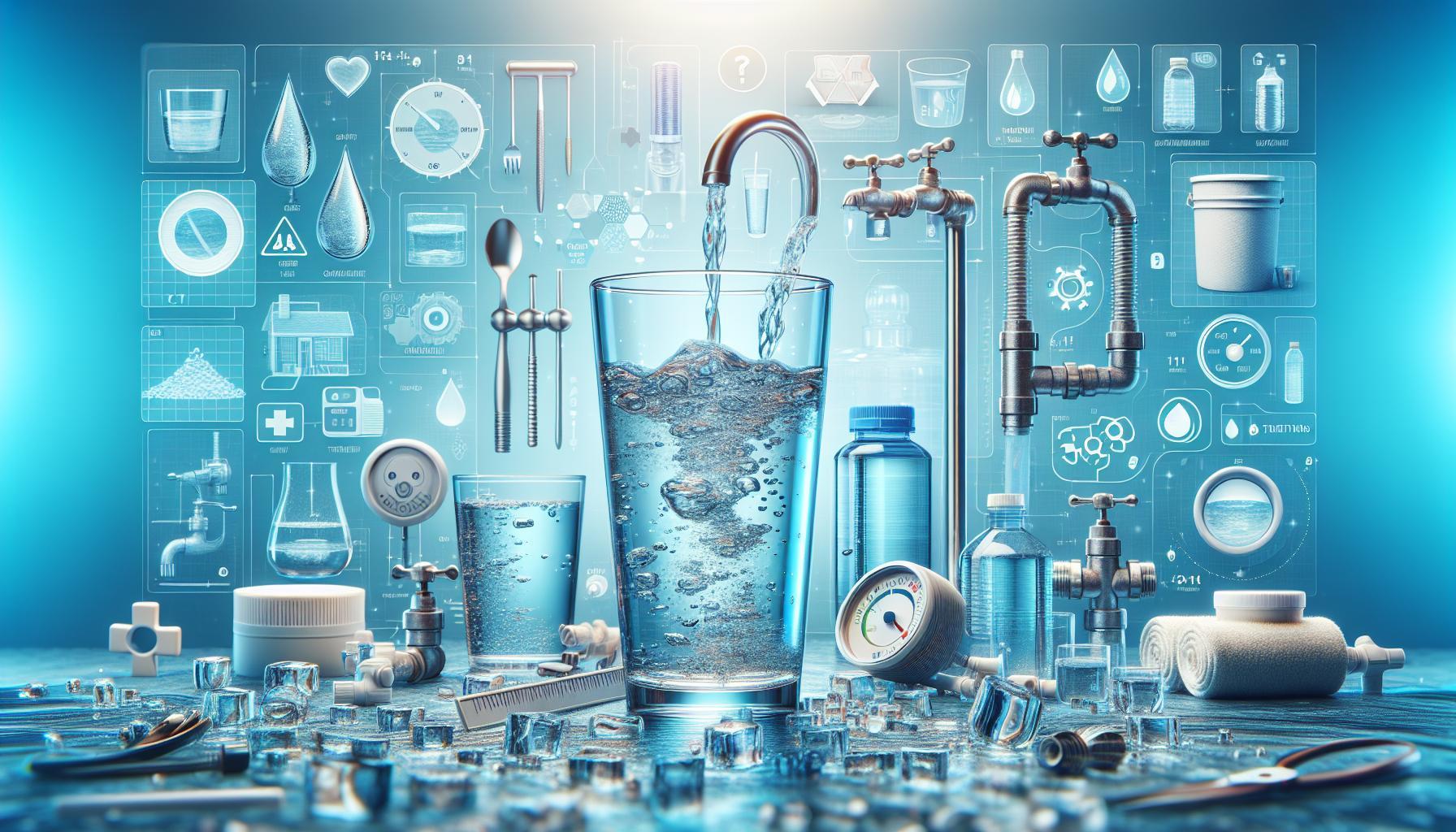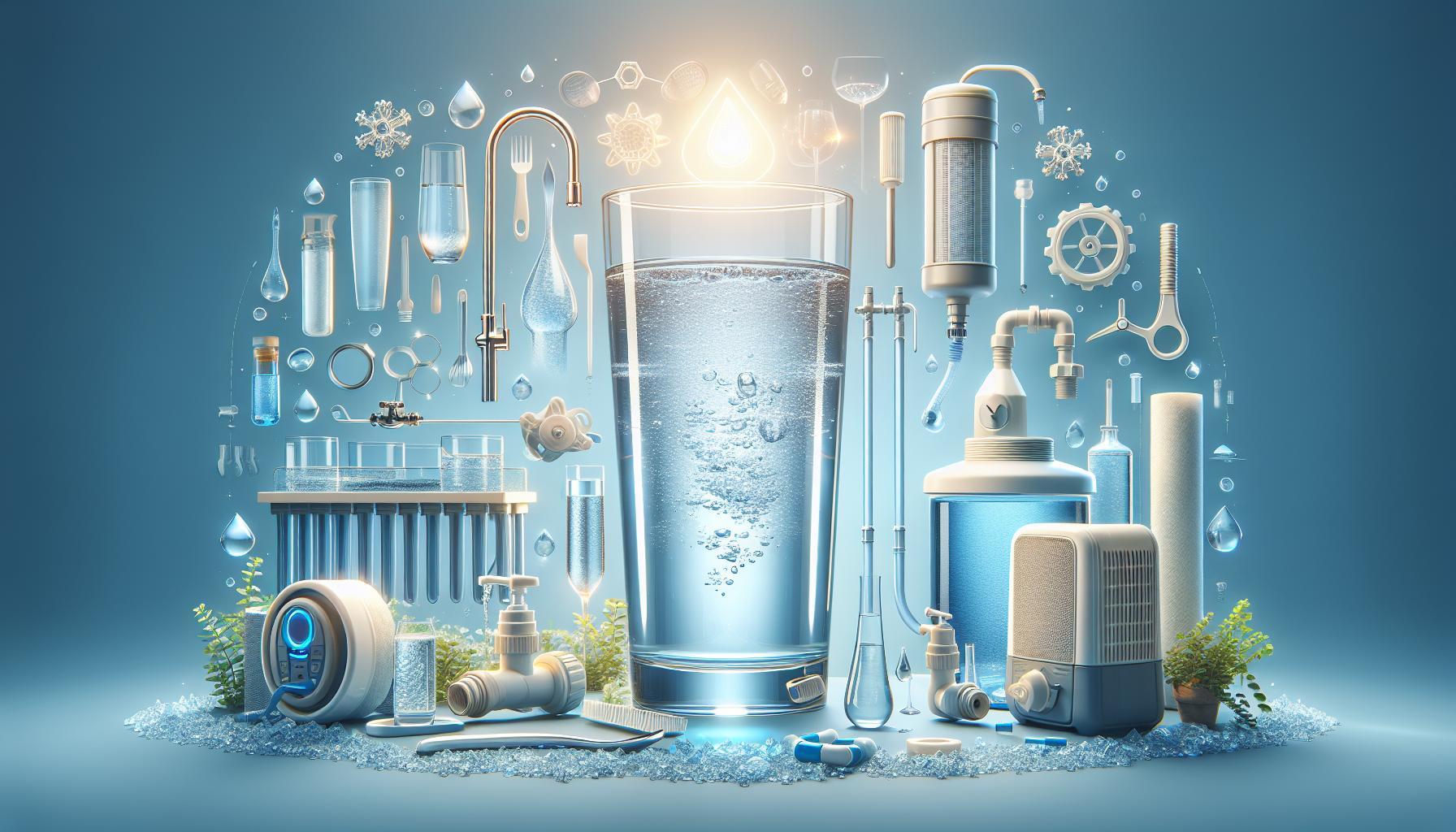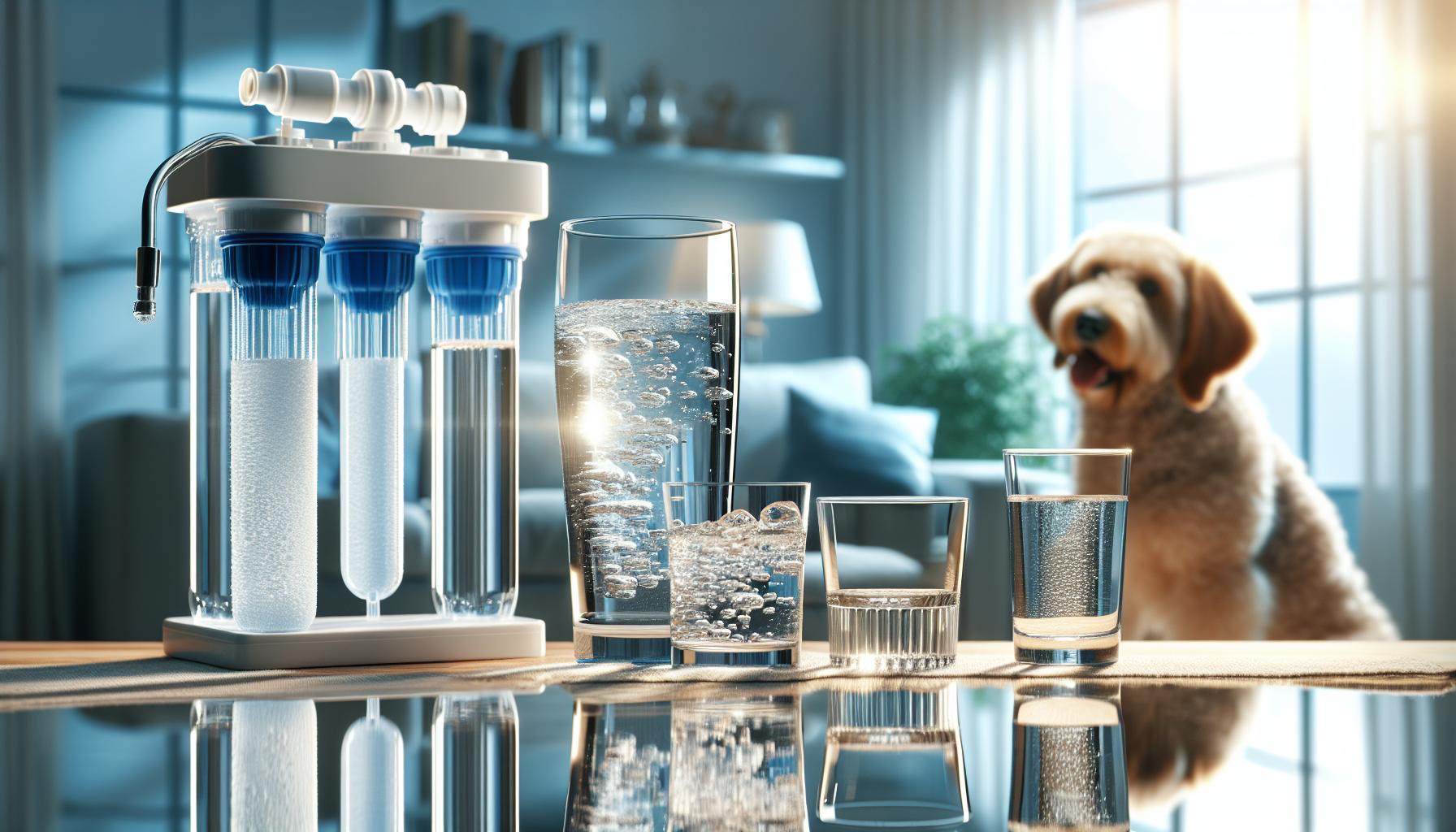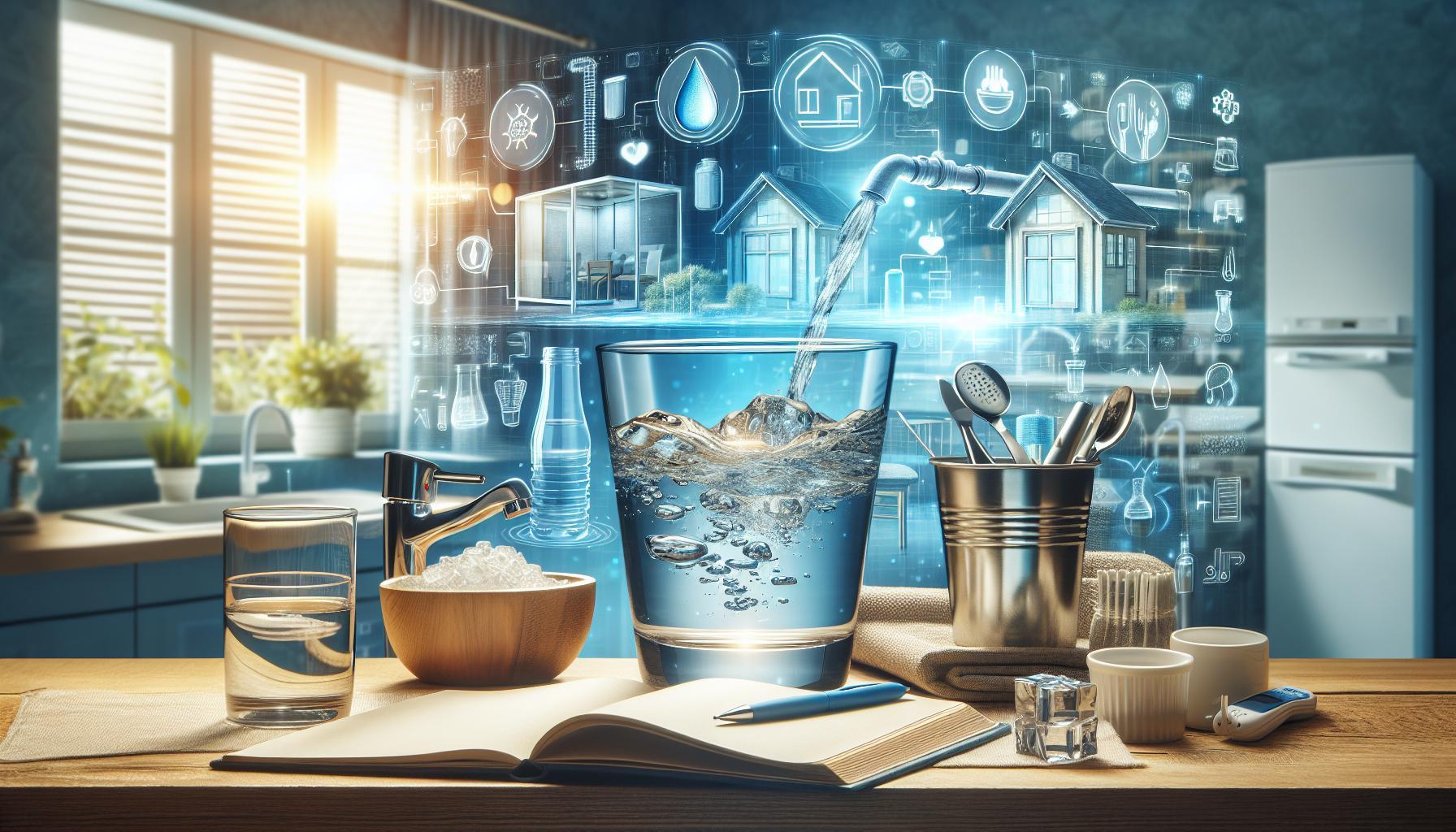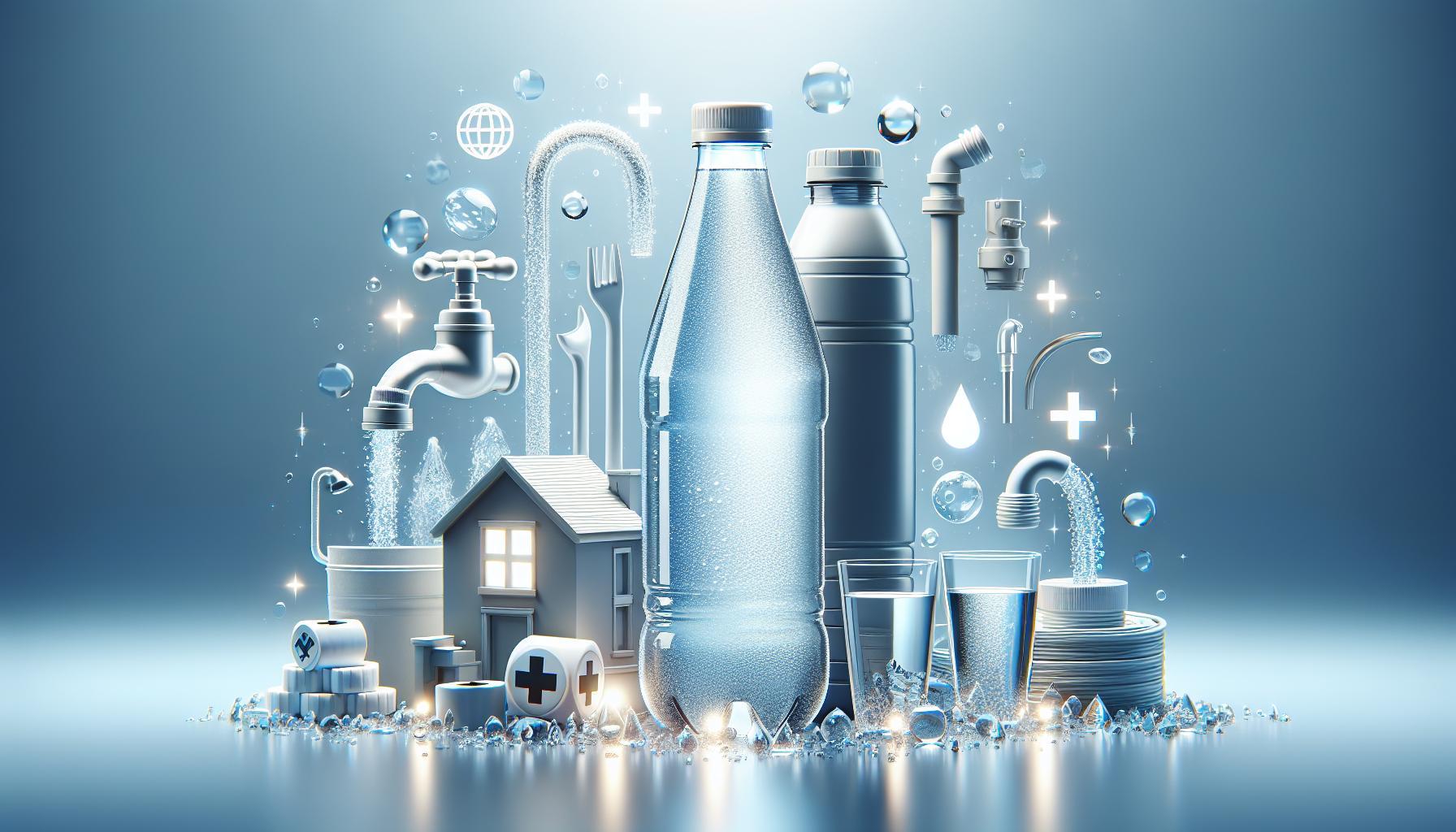Experiencing discomfort in your stomach after drinking water can be puzzling and concerning. Understanding the underlying causes—ranging from simple habits to potential health issues—is crucial for relief and prevention. This common yet often overlooked problem can affect hydration efforts and overall well-being, making it essential to explore effective solutions.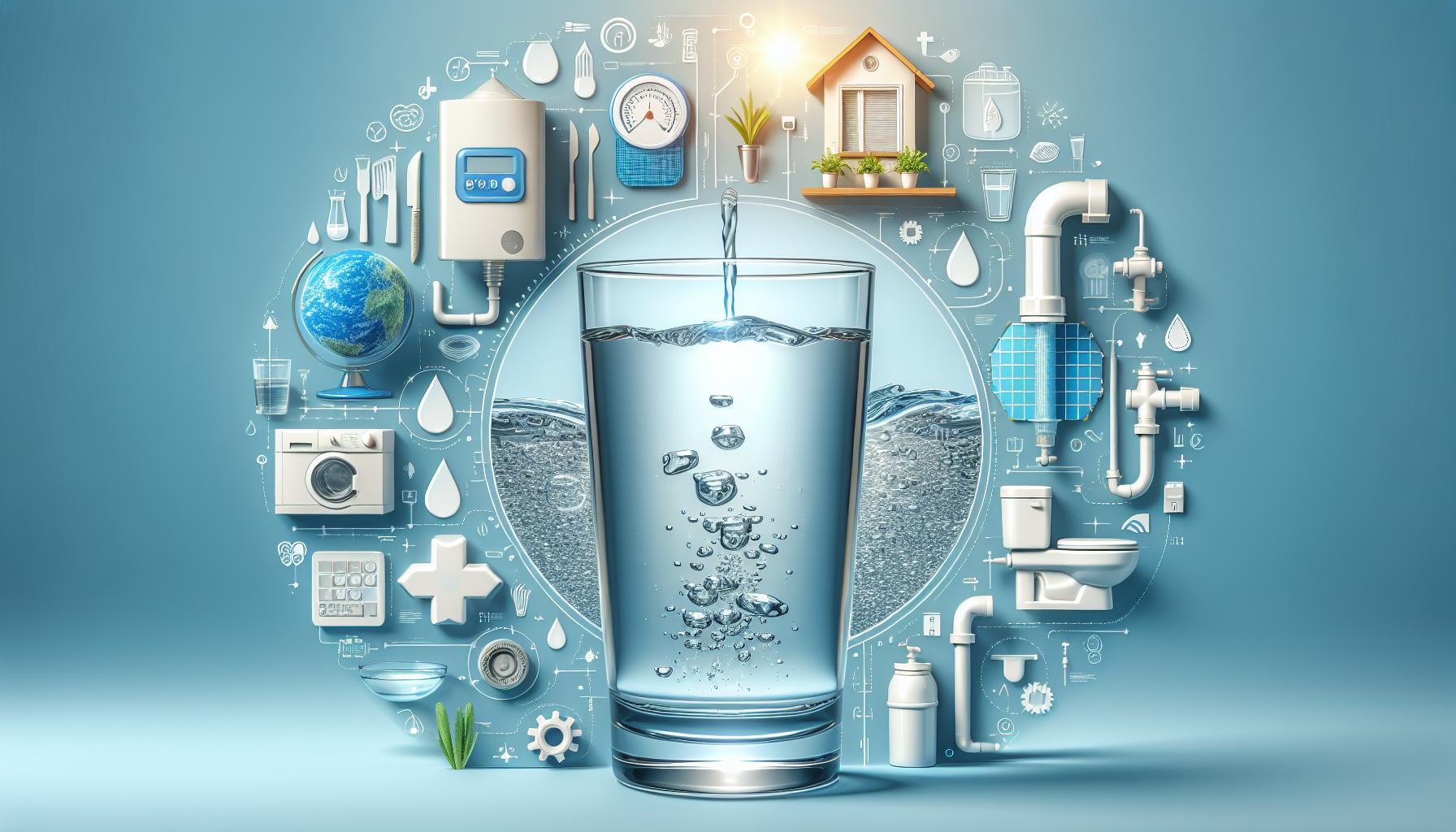
Understanding Common Stomach Discomfort After Drinking Water
Experiencing discomfort in your stomach after sipping water is a common yet often overlooked issue that many people face. This discomfort can stem from various sources, ranging from simple habits to more complex medical conditions. Understanding why your stomach might hurt after drinking water is crucial for addressing the issue effectively.
One prevalent cause of stomach pain post-water consumption is the rate at which you drink. Drinking too quickly can lead to a condition known as fluid overload, where your stomach expands rapidly, overstretching and causing sharp pain. Additionally, drinking water on an empty stomach can stimulate excess acid production, leading to a sensation of heartburn. Consuming very cold water can also irritate sensitive stomach lining and trigger discomfort, especially in individuals with conditions like gastritis or irritable bowel syndrome (IBS) [1[1][3[3].
Underlying Conditions to Consider
While many instances of stomach pain are benign and self-limiting, it’s essential to be aware of potential underlying conditions. These may include:
- Gastroesophageal Reflux Disease (GERD): This chronic condition can cause stomach acid to flow back into the esophagus, resulting in pain and discomfort after drinking.
- Peptic Ulcers: These sores on the lining of the stomach can be exacerbated by the intake of water, especially if consumed in large amounts.
- Sensitivity to Water Temperature: Some people may experience discomfort from consuming cold or hot water, indicating a sensitivity that might warrant further exploration.
Understanding the nuances of why you experience discomfort after drinking water can empower you to make informed adjustments, such as moderating your drinking pace and being mindful of water temperature. If symptoms persist, it is advisable to consult with a healthcare provider to rule out serious conditions and receive tailored advice. By addressing both habits and potential health issues, you can alleviate discomfort and enjoy hydration without pain.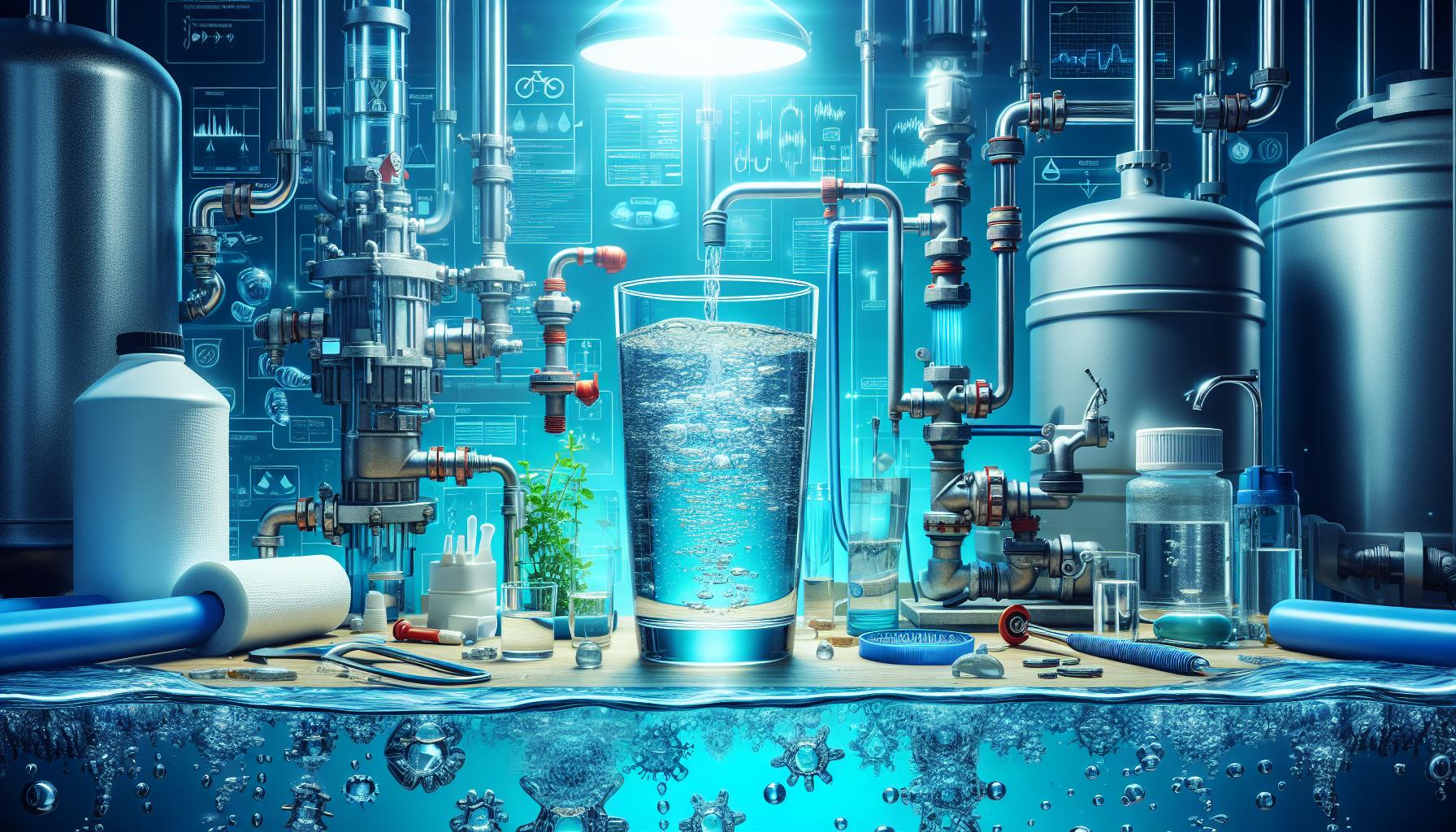
Could Your Drinking Habits Be the Culprit?
Many people overlook the connection between their drinking habits and stomach discomfort, often attributing the pain to other factors. However, the way you consume beverages—including water—can significantly affect your digestive health. Particularly, habits associated with excessive alcohol consumption can lead to conditions that cause pain in the stomach area, challenging the notion that it’s solely what you drink that matters. Understanding this connection is crucial for anyone asking, “Why Does My Stomach Hurt After I Drink Water? Causes & Solutions.”
Excessive alcohol intake can irritate the stomach lining, leading to ailments such as alcoholic gastritis, where the stomach becomes inflamed as a result of constant irritation from alcohol. This inflammation manifests as discomfort, nausea, and even pain after consuming any type of liquid, including water. Regularly drinking large amounts of alcohol not only risks acute gastritis but also contributes to chronic digestive issues, complicating your body’s response to even benign substances like water. If you find that your stomach often hurts after drinking, it’s worth reflecting on your alcohol consumption patterns.
To tackle this issue, consider adopting healthier drinking habits. Here are some steps to help mitigate discomfort linked to your drinking choices:
- Monitor Alcohol Intake: Keep track of how much and how often you drink. Aim to reduce excessive consumption gradually.
- Stay Hydrated: Water is crucial for digestion; regular water intake can help neutralize some of the irritating effects of alcohol.
- Choose Wisely: Opt for lighter alcohol options when you do drink, as some beverages can exacerbate stomach irritation.
- Consult a Professional: If regular stomach discomfort persists, consider seeking guidance from a healthcare provider.
In summary, your drinking habits could be behind the stomach pain you experience after drinking water. By reassessing your alcohol intake and making conscious choices about hydration and consumption, you can start to mitigate discomfort. Engaging in mindful drinking practices not only enhances your overall health but may also lead to a more positive experience every time you hydrate.
How Temperature and Type of Water Affect Your Gut
The temperature and type of water you consume can significantly influence your digestive health. For many, the simple act of drinking water can lead to discomfort or even stomach pain. Understanding the underlying principles of how different water temperatures affect your gut can empower you to make better choices. For instance, studies suggest that cold water may slow down the digestive process as it requires the body to expend energy to warm it to body temperature. This delay can lead to feelings of bloating or cramping in sensitive individuals, especially if consumed in large amounts.
Conversely, warm or hot water tends to promote digestion by relaxing the stomach muscles and aiding in the breakdown of food. This effect is particularly beneficial for those who suffer from irritable bowel syndrome (IBS) or other gastrointestinal disorders. Integrating warm water into your routine, especially first thing in the morning, can stimulate digestion and may even help alleviate cramps that arise after consuming cold beverages. In practice, opting for room temperature or warm water during meals can facilitate smoother digestion and minimize discomfort.
Additionally, the type of water—whether it is tap, bottled, or filtered—plays a role in how the body reacts. Tap water, which may contain minerals or contaminants depending on local infrastructure, could cause irritation for some people. On the other hand, filtered water, which often has fewer impurities, can be gentler on the stomach, helping to reduce the likelihood of discomfort. If you notice consistent pain after drinking certain types of water, consider switching to filtered options and observing any changes in your symptoms.
Here’s a quick reference for temperature effects on digestion:
| Water Temperature | Effect on Digestion |
|---|---|
| Cold | May slow digestion, can cause cramps or bloating. |
| Room Temperature | Neutral effect, generally mild and soothing for the gut. |
| Warm/Hot | Promotes relaxation of stomach muscles; may aid digestion. |
Be mindful of how your body reacts to different temperatures and types of water. Making small adjustments can lead to significant improvements in your overall gut health, ultimately answering the question, “Why does my stomach hurt after I drink water?” By choosing wisely, you can enhance your hydration experience and minimize discomfort.
Identifying Underlying Medical Conditions
Stomach discomfort after drinking water can signify various underlying medical conditions, often warranting attention to identify the root cause. For many, the sensation may seem transient or tied to specific activities, but persistent pain must not be overlooked. Conditions such as gastritis or peptic ulcers may lead to heightened sensitivity in the stomach lining when exposed to water, resulting in discomfort. Understanding the interplay between hydration and gastrointestinal health is crucial for maintaining overall well-being.
### Common Underlying Conditions
Several medical issues might cause pain shortly after drinking water. Some of the most common include:
- Gastritis: Inflammation of the stomach lining can be exacerbated by drinking water, especially if the stomach is already irritated.
- Peptic Ulcers: These sores on the stomach lining may react negatively to water, particularly if the ulcer is active or inflamed.
- Acid Reflux: Water can increase the volume of content in the stomach, potentially leading to reflux symptoms if the lower esophageal sphincter is compromised.
- Food Intolerance: In some cases, individuals may have mild intolerances that are triggered by drinking even plain water.
### Recognizing Symptoms
Being aware of accompanying symptoms can provide essential clues for determining the underlying cause of discomfort. For instance, if drinking water is accompanied by:
- Nausea or vomiting
- Bloating or a sense of fullness
- Heartburn or chest pain
- Changes in bowel habits
these signs could suggest a more serious condition that requires medical evaluation. Tracking these symptoms can help healthcare professionals accurately diagnose the issue.
### When to Seek Help
If episodes of stomach pain persist or worsen after drinking water, it’s crucial to consult with a healthcare provider. They may recommend diagnostic tests such as endoscopy or imaging studies to discern the cause. Recognizing that some symptoms may point to more serious conditions, such as appendicitis or gallbladder inflammation, emphasizes the importance of early intervention.
| Symptom | Possible Condition |
|---|---|
| Pain after drinking | Gastritis |
| Nausea | Peptic Ulcer |
| Bloating | Food Intolerance |
| Heartburn | Acid Reflux |
Understanding why there is discomfort after drinking water is crucial for managing health effectively. By monitoring symptoms and engaging in open discussions with healthcare providers, individuals can enhance their knowledge and make informed decisions about their health based on the insights from “Why Does My Stomach Hurt After I Drink Water? Causes & Solutions.”
The Role of Hydration in Digestive Health
Maintaining proper hydration is crucial for optimal digestive health, a fact that can often be overlooked. Many individuals experience discomfort, such as bloating or cramping, after consuming water, which may prompt the question: “Why does my stomach hurt after I drink water? Causes & Solutions.” Understanding the vital role hydration plays in digestion can provide insight into these uncomfortable episodes, as well as how to prevent them in the future.
Water is essential for various digestive processes. It acts as a lubricant, facilitating the smooth passage of food through the gastrointestinal tract. Without adequate hydration, the body struggles to break down food effectively, leading to complications such as constipation and indigestion. When the stomach is not sufficiently hydrated, it may become unable to produce enough gastric juices, which can result in discomfort after drinking water. This is particularly relevant for those who may have underlying digestive conditions that require careful management of fluid intake.
Key Functions of Water in Digestion
- Saliva Production: Hydration boosts saliva production, aiding in the initial breakdown of food and making it easier to swallow.
- Nutrient Absorption: Sufficient water intake ensures that nutrients are absorbed more efficiently in the intestines, promoting overall health.
- Bowel Regularity: Adequate hydration is crucial for regular bowel movements, preventing issues like constipation that can lead to additional discomfort.
For individuals experiencing stomach pain post-water consumption, it may help to monitor the temperature of the water as well. Cold water can sometimes cause muscle contractions in the stomach, leading to cramping. Additionally, drinking large amounts at once may overwhelm the digestive system. Instead, sipping water throughout the day in smaller amounts can alleviate these symptoms and support a balanced digestive environment.
Hydration Recommendations
The amount of water needed varies by individual, influenced by factors such as activity level, temperature, and overall health. A general guideline is to drink at least eight 8-ounce glasses of water daily, but this can increase based on personal needs. If discomfort persists, consider keeping a hydration diary to track your intake and symptoms, identifying any correlations that may provide further insights into your digestive health.
In summary, understanding how hydration impacts digestive health is essential not only for preventing discomfort but also for enhancing overall wellness. Adequate hydration can mitigate the associated questions of “Why does my stomach hurt after I drink water? Causes & Solutions,” leading to a more comfortable and efficient digestion process.
Practical Tips for Easing Stomach Pain After Drinking Water
Experiencing stomach pain after drinking water can disrupt your day and raise concerns about your digestive health. Fortunately, there are practical strategies you can implement to alleviate discomfort and ensure that you stay hydrated without pain. Several factors contribute to this sensation, ranging from drinking habits to temperature preferences. Understanding and adjusting these can help mitigate the issue significantly.
Adjust Your Drinking Habits
One of the simplest ways to ease stomach pain after drinking water is to change how you consume it. Consider the following tips:
- Slow Down: Drinking water too quickly can lead to stomach distension and discomfort. Take smaller sips and allow your stomach to adjust.
- Temperature Matters: Some people may experience discomfort when drinking cold water. Experiment with room temperature or warm water to see if it alleviates your symptoms.
- Eat Before Drinking: Consuming water on an empty stomach can sometimes cause more distress. Try drinking water after a small meal or snack.
Stay Mindful of Quantity
Overloading your stomach with large volumes of water, especially all at once, can lead to pain. Gradual hydration throughout the day is often more manageable for the digestive system. Aim to drink water consistently rather than in big gulps which can cause your stomach to expand quickly.
Monitor Underlying Conditions
If you frequently experience stomach pain after hydration, it may be worth consulting a healthcare professional. Conditions such as acid reflux or hypersensitivity may worsen the sensations caused by drinking water. Keeping track of your symptoms, including when they occur and their severity, can provide valuable insights for your doctor.
Consider Alternative Solutions
If discomfort persists despite these adjustments, exploring herbal teas or electrolyte-infused drinks may help soothe your stomach. Additionally, engaging in light physical activities, such as a short walk after drinking water, can aid digestion and improve comfort levels.
By implementing these practical tips, you can better understand why your stomach might hurt after drinking water and find effective solutions that work for you. Staying hydrated is vital, and taking intentional steps to ease discomfort ensures that your digestive health remains a priority.
When to Seek Medical Attention for Digestive Issues
Experiencing discomfort in your stomach after consuming water can raise important questions about your digestive health. This phenomenon could be indicative of various underlying issues, especially if the pain is persistent. It’s crucial to recognize that while occasional discomfort may stem from minor causes, there are certain circumstances when seeking medical attention becomes essential for your well-being.
Signs You Should Not Ignore
Certain symptoms accompanying stomach pain should prompt immediate consultation with a healthcare provider. If you experience any of the following, it’s advisable to seek help without delay:
- Severe abdominal pain: Intense or sudden pain, especially if accompanied by fever or vomiting, warrants prompt evaluation.
- Persistent vomiting: Inability to retain fluids can lead to dehydration, an urgent condition that requires medical intervention.
- Blood in vomit or stool: This symptom may signal internal bleeding and should be addressed immediately.
- Unexplained weight loss: Losing weight without trying can be a sign of a serious underlying condition.
- Changes in bowel habits: Sudden diarrhea or constipation, particularly if lasting more than a few days, should be examined.
When to Consult a Gastroenterologist
If the pain and discomfort persist despite lifestyle adjustments—such as modifying your diet based on insights from “Why Does My Stomach Hurt After I Drink Water? Causes & Solutions”—consider reaching out to a gastroenterologist. They can provide specialized insight into potential gastrointestinal disorders that could be causing your symptoms. Conditions like inflammatory bowel disease (IBD) or celiac disease may require more extensive evaluation and management to prevent complications.
Being aware of your body’s signals is key to maintaining digestive health. Recognizing when to seek medical attention not only helps address current discomfort but also prevents more serious health issues from arising in the future. Engaging with your healthcare provider about these persistent concerns can lead to effective treatments tailored to your specific needs.
Debunking Myths: Is Water Actually Bad for Your Stomach?
Many people experience discomfort after drinking water, leading to questions about whether water could be harmful to the stomach. However, this common belief often stems from misunderstandings about hydration and digestion. It’s essential to clarify these misconceptions to better understand why your stomach might hurt after drinking water, and explore viable solutions to alleviate the discomfort.
One prevalent myth is that drinking large amounts of water can neutralize stomach acid, which some believe might relieve heartburn or indigestion. In reality, it’s essential to recognize that water does not significantly alter your stomach’s acidity levels. Instead, it plays a crucial role in maintaining healthy digestion. Drinking water aids in breaking down food, promotes nutrient absorption, and can help alleviate constipation. However, if consumed too quickly or in excess, water can stretch the stomach, leading to feelings of fullness or discomfort.
Understanding Stomach Discomfort
If you’re frequently asking yourself, “Why does my stomach hurt after I drink water?”, several factors could be at play. For instance:
- Temperature of Water: Cold water can cause abdominal cramps in some individuals, while warm water might soothe the stomach.
- Rate of Consumption: Chugging water quickly can create pressure within the stomach, resulting in discomfort.
- Food Intake: Drinking water immediately after eating can lead to bloating, particularly if the meal was heavy.
To mitigate these issues, consider implementing a few practical strategies. Try sipping water slowly, especially during meals, and opt for room temperature or warm water to see if your symptoms improve. Additionally, listening to your body and adjusting your hydration routine based on your needs can make a significant difference.
In conclusion, while your stomach may protest upon drinking water, it’s crucial to distinguish between discomfort and harmful effects. Identifying the causes, such as drinking habits and meal timing, can help you find effective solutions and eliminate the myth that water itself is bad for your stomach. By understanding the relationship between water consumption and digestive health, you can enjoy its benefits without the discomfort.
Frequently Asked Questions
Why Does My Stomach Hurt After I Drink Water?
Stomach pain after drinking water can occur due to several reasons, including overhydration, sensitivity to cold water, or underlying digestive issues. Understanding the cause can help you manage your symptoms effectively.
For some individuals, drinking large amounts of water at once may cause discomfort due to stomach stretching. Additionally, if you have a pre-existing condition like gastritis or irritable bowel syndrome (IBS), drinking water can trigger pain. Consider sipping smaller amounts and monitoring how your body responds.
What are the common causes of stomach pain after drinking water?
Common causes of stomach pain after drinking water include gastritis, acid reflux, and overhydration. Each condition affects your stomach differently, leading to discomfort.
For instance, if you have gastritis, consuming water may exacerbate inflammation in your stomach lining, causing pain. Acid reflux sufferers might experience pain due to the increased pressure from water on an already sensitive digestive tract. Consult with a healthcare provider for accurate diagnosis and tailored solutions.
Can dehydration cause stomach pain after drinking water?
Dehydration itself is unlikely to cause stomach pain after drinking water but may lead to discomfort as your body adjusts. If you’re dehydrated, your stomach might react negatively when you suddenly intake fluid.
To address this, try consuming small amounts of water gradually, which can help ease discomfort. If you often experience symptoms after drinking, consider keeping a journal of your water intake and symptoms, as this information can be invaluable for healthcare professionals.
How can I prevent stomach pain after drinking water?
Preventing stomach pain after drinking water involves simple lifestyle changes such as drinking slowly and avoiding cold water if you’re sensitive to temperature changes.
Try to drink room-temperature water and consume it in small sips rather than large gulps. This method can help reduce discomfort and is often recommended for individuals with sensitive stomachs or those suffering from conditions like IBS.
Can water temperature affect my stomach pain?
Yes, the temperature of the water can influence your stomach pain. Cold water may cause cramping or discomfort in some individuals, especially if they have existing digestive issues.
Room-temperature or warm water is generally easier on the stomach and may help you feel more comfortable. If you’re unsure, experiment with different temperatures and take note of your body’s responses to identify what works best for you.
When should I see a doctor about stomach pain from drinking water?
Consult a doctor if your stomach pain persists after drinking water or if you experience additional symptoms like nausea, vomiting, or changes in appetite. This may indicate a more serious underlying issue.
Regular occurrences of pain, especially if coupled with other alarming symptoms, warrant a professional evaluation. Early diagnosis can effectively address potential issues like gastritis or ulcers.
Are there any home remedies for stomach pain after drinking water?
Yes, several home remedies can help alleviate stomach pain after drinking water. Ginger tea, peppermint, or chamomile can soothe your digestive tract and reduce discomfort.
Additionally, consider adjusting your diet to avoid irritants, such as spicy foods or caffeine, which might trigger symptoms. Incorporating more fiber-rich foods can also promote healthy digestion. For persistent issues, it’s best to consult a healthcare professional.
In Summary
In conclusion, stomach pain after drinking water can stem from various causes, including digestive issues, temperature sensitivity, or even underlying medical conditions. It’s essential to be mindful of how quickly you drink and the temperature of the water, as gulping down cold water can contribute to discomfort. If you experience persistent pain, consulting a healthcare professional is a wise step to rule out any serious underlying issues. Remember, staying hydrated is crucial for your health, so understanding the factors that may cause discomfort can empower you to make informed choices. For more insights and tips on managing stomach pain related to water consumption, explore our other articles or reach out for further guidance. Your health journey starts with awareness!

